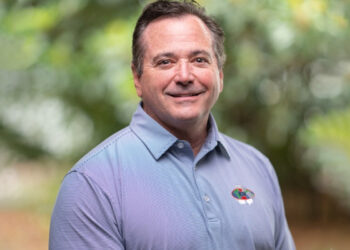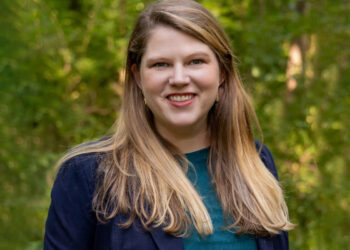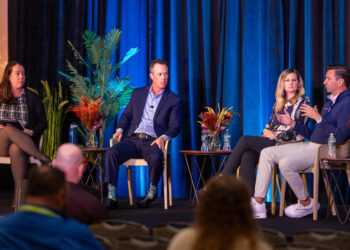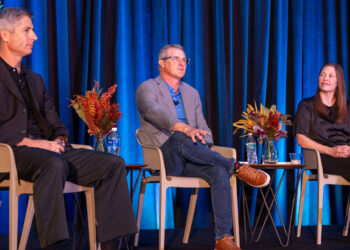At first glance, there aren’t a ton of similarities between Portland, a green, liberal city of 650,000 people, and Dayville, a conservative, Eastern Oregon town of dozens of residents.
But one thing they both want is producers to help fund equipment and supplies for curbside and drop-off recycling service for their residents.
As the Oregon Department of Environmental Quality (DEQ) implements a bill meant to modernize the Beaver State’s recycling systems, staff officials commissioned a survey asking local governments what they need to expand recycling service.
DEQ recently published results of the survey, which was spearheaded by consulting firm Eunomia Research and Consulting.
Under the state’s Plastic Pollution and Recycling Modernization Act (RMA), producer responsibility organizations (PROs) will be responsible for funding the expansion of recycling service in all communities that want it. The goal is to help local governments and their service providers offer residents a base level of service with uniform lists of accepted materials statewide.
The 263-page needs report authored by Eunomia comes at a time of heightened interest in the U.S. in EPR programs for packaging and printed paper. Oregon, California, Colorado and Maine have all passed and signed printed paper and packaging EPR legislation in recent years.
Many stakeholders, including producer groups, say needs assessments are essential components of the programs, informing what investments need to be made to ensure an efficient, well-performing system.
A recent look at Oregon’s needs assessment illustrates how, as EPR programs come into effect, different jurisdictions are starting from very different places and have different solutions in mind.
Support for expanding service
Eunomia’s report showed that most local governments, including counties, cities and metropolitan service districts, want to expand their recycling service starting in 2025-27, the first program plan period under the RMA. That being said, they have different visions for serving their constituents.
Of those taking the survey, which was open from Jan. 5 through April 14, 92% indicated their interest in expanding curbside and/or drop-off service in their jurisdictions, according to Eunomia’s report.
Of those who want expanded service, 69% said they want to add new on-route recycling collection service, 81% said they want to expand existing on-route collection service, 70% said they want to build new recycling drop-off depots, 60% said they want to expand existing depots, 36% said they want new reload facilities (where recyclables are compacted for shipment elsewhere for sorting) and 45% want to expand their reload facilities.
The DEQ will provide the responses from the survey to the PROs, which must submit a plan to DEQ by March 31, 2024. In their plans, the PROs must “describe how they will provide funding to local governments in the program plan, and will use the needs assessment to inform this requirement,” according to the DEQ. The service expansions go into effect July 1, 2025.
In their responses, local governments identified some big ticket items, including trucks, on-board contamination monitoring technologies, containers, material handling equipment, balers, land, building construction, staffing and more.
Different approaches to expanding service
While most local governments want to expand service starting July 1, 2025, they sometimes proposed to do it in unique ways. Portland, the largest city in the state, already has on-route (curbside) collection for single-family houses, multifamily homes and commercial establishments. It also provides drop-off depots.
In terms of new curbside service, the city’s survey response indicated it wants to add both single-family and multifamily service. The city also wants to expand curbside service, and it requested collection receptacles and on-board contamination monitoring equipment and software. Finally, the City of Roses requested land for new recycling depots.
Hundreds of miles away, the town of Dayville, population 137, doesn’t have any recycling service, but it wants on-route collection. The city recorder indicated in the survey that the town wants the truck(s), collection receptacles and contamination monitoring equipment to start multifamily on-route collection, and that Dayville needs just about everything for a recycling depot and reload facility.
In contrast, the town of Sumpter, population 209, wants drop-off service only. Currently, the town has no service, with residents who wish to recycle driving their materials to Baker City, a 56-mile round trip drive, the mayor wrote in the survey response.
Sumpter is seeking PRO funding for a recycling depot, including collection containers, signs and cameras to monitor for contamination or illegal dumping.
Not everyone wants recycling service or wants it expanded, the survey shows. Eunomia reported that 19 local governments – all towns with fewer than 4,000 residents – said they aren’t interested in expanding service.
In the smallest town represented in the survey, Lonerock, population 25, the mayor indicated there is no service. In response to a question about whether the town is interested in expanding service in 2025-27, the mayor wrote simply, “No.”





















